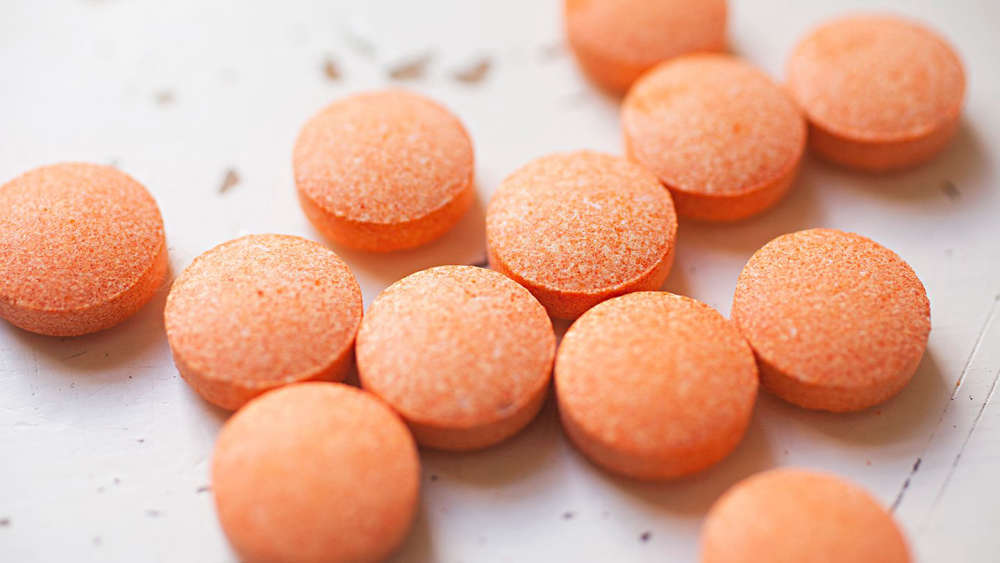
A Professor of Dermatology, Dasetima Altraide, has warned that excessive intake of Vitamin C can lead to kidney stones and chronic kidney disease.
His warning follows a revelation by Dr. Christabel Akinola on X about a 28-year-old woman who suffered kidney failure due to high doses of Vitamin C supplements taken for skin enhancement.
Dr. Akinola, a medical doctor and nutrition expert, shared the case of the young woman who had been consuming excessive amounts of Vitamin C in the hope of achieving a lighter and more radiant complexion. According to her, the patient had no prior history of hypertension or diabetes—two major risk factors for kidney disease—yet she experienced rapid kidney deterioration. Medical tests revealed that the woman had developed oxalate deposits in her kidneys, a direct consequence of Vitamin C overconsumption.
"She was using Vitamin C pills, Glutathione powder, and intravenous infusions, all in large doses, without understanding the risks," Dr. Akinola recounted. "By the time she started experiencing severe fatigue and swelling, her kidneys had already sustained significant damage. She was immediately placed on dialysis, but ultimately, a transplant was the only option. Her younger sister had to donate a kidney to save her life."
Speaking in an interview with Correspondent Ifechukwu Muonyili, Prof. Altraide explained that overconsumption of oral or injectable Vitamin C poses serious risks to kidney health.
"When you take Vitamin C excessively, that is when it causes kidney stones. When kidney stones develop, they can lead to chronic kidney disease," he said. "Vitamin C applied to the skin in moderate amounts is generally safe, but when injected or taken orally in excessive doses, it becomes a significant health risk."
Professor Altraide, who serves in the Department of Internal Medicine at the University of Port Harcourt Teaching Hospital, advised Nigerians against patronizing unregulated skincare specialists. He noted that many of these so-called beauty experts lack proper knowledge of dosage and product safety, making their treatments highly dangerous.
"These roadside beauty specialists are not tested at all. They combine anything without knowing the potential dangers. People need to stop patronizing them," he cautioned. "If you are not licensed, you should not be mixing creams or carrying out skincare procedures. There must be a task force to clamp down on those practicing without a license."
The professor also criticized the growing use of bleaching creams in Nigeria, citing a recent UNICEF report that named the country as the leading consumer of skin-lightening products in Africa. He pointed out that unlike in developed countries where hydroquinone—the key ingredient in many bleaching creams—is strictly regulated, Nigeria continues to allow its unregulated importation and sale.
"In the UK and the US, there are clear regulations on the permissible percentage of hydroquinone in skincare products. But in Nigeria, these creams are dumped in large quantities, many of them even carrying NAFDAC approval numbers," he lamented.
He accused some NAFDAC officials of complicity in the proliferation of bleaching creams, recalling an incident that raised serious concerns among dermatologists.
"We once had a discussion with a NAFDAC official about the dangers of bleaching creams. The very next day, we saw him attending the launch of a new bleaching product. That is the level of the problem we are dealing with," he revealed.
While commending the National Medical Association (NMA) for its efforts in shutting down unlicensed practitioners, he urged the government to take stricter action to regulate the beauty industry and protect public health.
"There should be a regulatory body overseeing the operations of all beauty spas in Nigeria. Right now, anyone can take a short online course, claim expertise, and start a skincare business. This has to stop. People should always verify the credentials of skincare practitioners before trusting them with their skin," he advised.
The growing cases of kidney failure linked to excessive Vitamin C intake and unsafe skin care practices highlight the urgent need for stricter enforcement of health regulations. Experts like Dr. Akinola and Prof. Altraide continues to advocate for greater awareness and responsible use of skincare products, urging Nigerians to prioritize their health over unverified beauty trends.


